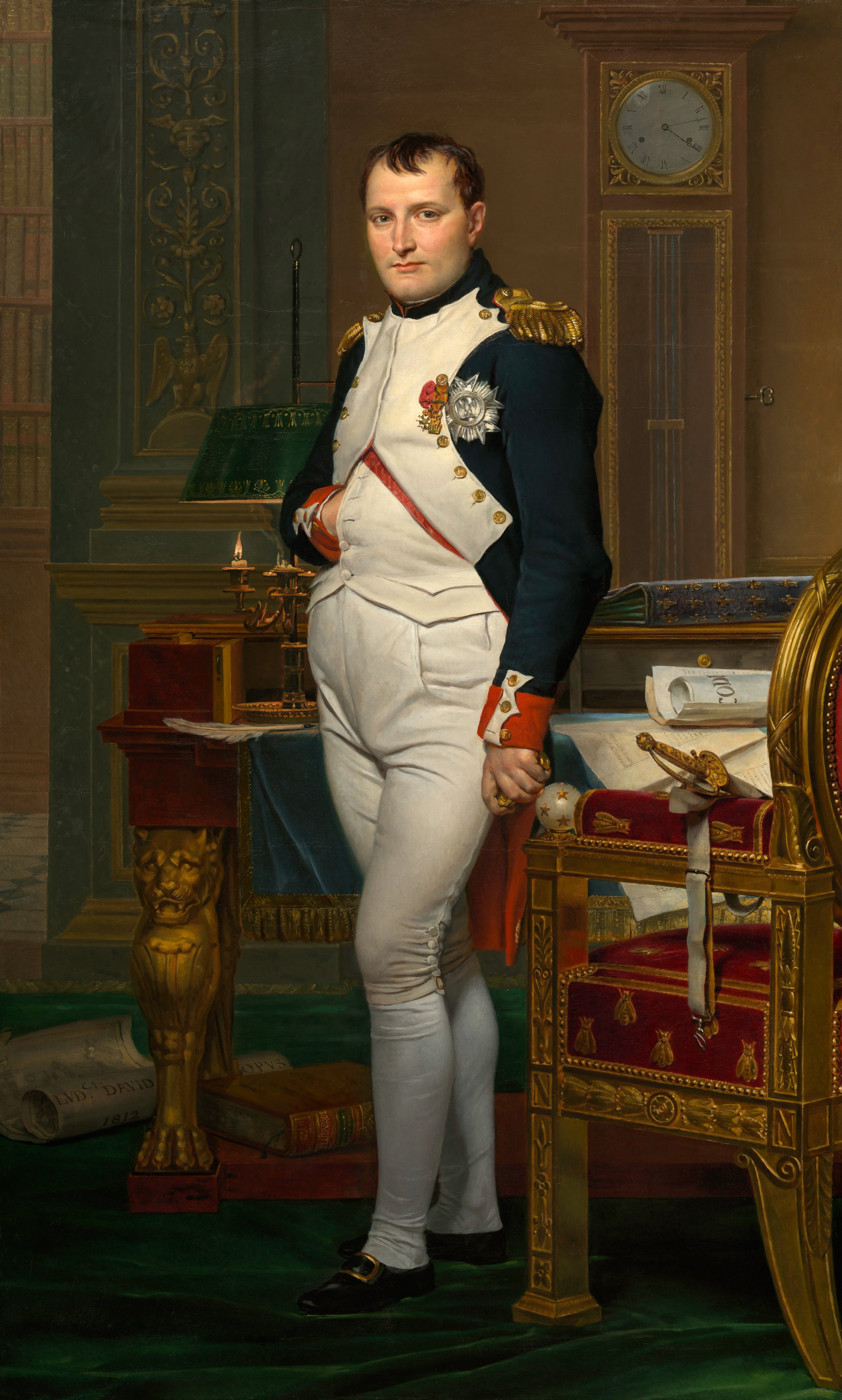Conversations avec General Bertrand à St. Helena
Napoleon Bonaparte Berühmte Zitate
Vor der Schlacht bei den Pyramiden, 21. Juli 1798
Original franz.: "Soldats, songez que du haut de ces pyramides quarante siècles vous contemplent!"
Brief an Talleyrand vom 12. März 1807, zitiert bei Hugo Friedrich Philipp Johann Freiherr von Freytag-Loringhoven: Die Heerführung Napoleons in ihrer Bedeutung für unsere Zeit (1910) S. 27 books.google http://books.google.de/books?id=4MkJAAAAIAAJ&q=Kinderspiel
"Aujourd'hui le sort de l'Europe et les plus grands calculs dépendent des subsistances. Battre les Russes, si j'ai du pain, c'est un enfantillage." - Correspondance (1863) p. 432 books.google http://books.google.de/books?id=z63SAAAAMAAJ&pg=PA432&dq=enfantillage
„Vom Erhabenen zum Lächerlichen ist nur ein Schritt.“
10. Dezember 1812 in Warschau, nach Friedrich Saalfeld: Geschichte Napoleon Buonaparte's. 2. Band. F. A. Brockhaus 1817 S. 477 books.google http://books.google.de/books?id=KOBBAAAAcAAJ&pg=PA477&dq=Erhabenen & 479
Original franz.: "Du sublime au ridicule il n'y a qu'un pas." - Meyers Großes Konversations-Lexikon 1906 bei zeno.org http://www.zeno.org/nid/20006523668
Napoleon Bonaparte: Zitate auf Englisch
“A constitution should be short and obscure.”
Quoted in The Life of Napoleon I by John Holland Rose as an exchange between Roederer and Talleyrand
Roederer tells us ("Œuvres," vol. iii., p. 428) that he had drawn up two plans of a constitution for the Cisalpine; the one very short and leaving much to the President, the other precise and detailed. He told Talleyrand to advise Bonaparte to adopt the former as it was "short and" — he was about to add "clear" when the diplomatist cut him short with the words, "Yes: short and obscure!"
Misattributed
Quelle: Political Aphorisms, Moral and Philosophical Thoughts (1848), p. 246
“Ability is nothing without opportunity.”
As quoted in Have You Ever Noticed? : The Wit and Irony of Every Day Life (1985) by Joe Moore
Attributed
“The secret of great battles consists in knowing how to deploy and concentrate at the right time.”
Napoleon : In His Own Words (1916)
“Religious wars are basically people killing each other over who has the better imaginary friend.”
There is no known basis to attribute this saying to Napoleon. It is found (unattributed) in a Usenet post from July 1999 https://groups.google.com/forum/message/raw?msg=soc.penpals/QIUrpkacWyE/FbCj7pij5WwJ.
Misattributed
Reported as being from an 1817 conversation in The Mind of Napoleon, ed. and trans. J. Christopher Herold (1955), p. 249. Reported as unverified in Respectfully Quoted: A Dictionary of Quotations (1989).
Attributed
Letter to Sheikh El-Messiri, (28 August 1798); published in Correspondance Napoleon edited by Henri Plon (1861), Vol.4, No. 3148, p. 420
“Never ascribe to malice that which is adequately explained by stupidity.”
Often known as Hanlon's razor, this was attributed to Napoleon without source in Message Passing Server Internals (2003) by Bill Blunden, p. 15, ISBN 0071416382
Misattributed
From an alleged Letter of to his Minister of the Interior on the Poor Laws. Pub. in The Press, Feb. 1, 1868.
Attributed
As quoted in Mama Was My Teacher: Growing Up In A Small Southern Town (2004) by Dozier Cade, p. 77
Attributed
“From the heights of these pyramids, forty centuries look down on us.”
Speech to his troops in Egypt (21 July 1798) Variant translation: "Soldiers, from the summit of yonder pyramids forty centuries look down upon you...". Published in the autobiography of French general Eugène de Beauharnais.
Napoleon : In His Own Words (1916)
“One can lead a nation only by helping it see a bright outlook. A leader is a dealer in hope.”
Napoleon : In His Own Words (1916)
Statement at the beginning of the 1813 campaign, as quoted in The Mind of Napoleon (1955) by J. Christopher Herold, p. 45
On the subject of torture, in a letter to Louis Alexandre Berthier (11 November 1798), published in Correspendance Napoleon edited by Henri Plon (1861), Vol. V, No. 3605, p. 128
“Give them a whiff of grapeshot.”
This is often quoted as a command Napoleon issued when dispersing mobs marching on the National Assembly in Paris (5 October 1795), or it is occasionally stated that he boasted "I gave them a whiff of grapeshot" sometime afterwards, but the first known use of the term "whiff of grapeshot" is actually by Thomas Carlyle in his work The French Revolution (1837), describing the use of cannon salvo [salve de canons] against crowds, and not even the use of them by Napoleon.
Misattributed
“Whatever misanthropists may say, ingrates and the perverse are exceptions in the human species.”
Napoleon : In His Own Words (1916)
